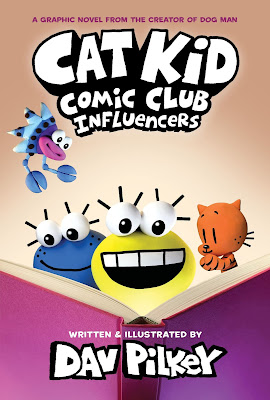In light of the Monica Lewinsky scandal, Philip Roth decided to explore the complicated nature of what society can do to a person with "The Human Stain." As the story of an interracial teacher who is fired for a deceptively offensive comment, the story explores how cancel culture can impact one's life. The results are, predictably, uncomfortable but finds Roth sympathizing with a man whose life unravels in a manner that begins to make sense the longer things go on. For every philosophical tirade and effort to get his life back together, the real story is about perspective. Can controversy stain one's life forever or are there ways to move beyond it? Along with a problematic relationship that muddies his relationship with the reader, this is a novel that has a lot of big ideas. How willing one is to listen depends on how much they want to spend time listening to a chauvinistic characer who reflects an older way of looking at the world.
Wednesday, August 14, 2024
#160. "The Human Stain" by Philip Roth
#159. "Cat Kid Comics Club: Influencers" by Dav Pilkey
One of the greatest gifts that Dav Pilkey have provided to readers is creativity. The latest entry in his famous creative arts series delivers on the promise of exploring what it takes to be an influencer. For as much as Pilkey embraces the nature of being silly, he's also an expert at understanding how to speak to young readers who maybe need advice on how to make art. While the initial idea can be exciting, the effort to have it reach its full potential is more difficult. His characters make the workshop process feel effortless as he makes even the painful idea of criticism palpable.
#158. "The Awakening" by Kate Chopin
While women have been written about for centuries, they have often been presented as fodder for male authors. They're reduced to the ever elusive muse role where they are more an object than a person. Even the authors who create the most dynamic characters have some shortcoming when it comes to giving women the depth they deserve. It's a big reason that Kate Chopin's short but definitely not slight novel "The Awakening" was perceived as such a revelation upon release. What it lacked in typical romantic drama fare, it more than made up for in deep rooted passion, existing within the subtext of every line as characters searched for happiness in their lives. The results may not be high on showmanship, but those willing to sit with the final passages will find something provocative and lasting within the description. Chopin represented not what women were seen as but what they were.
Tuesday, August 13, 2024
#157. "The Neon Bible" by John Kennedy Toole
One of the most tragic stories of 20th century literature is John Kennedy Toole. While his eventual publications would suggest redemption, the fact that each of his two novels were released long after his passing only helps to reflect how everyone's voice is not fully appreciated within one's lifetime. A lot of his acclaim came with his second completed novel but first published "A Confederacy of Dunces." With an impeccable depiction of New Orleans subcultures, it was considered one of the essential novels of its time. It makes sense that interest would inspire his other novel to go to print, even if it feels very much like the work of a teenage author still finding his voice.
Toole wrote "The Neon Bible" when he was 19. While the prose within itself is above average for a writer, it's still reflective of someone trying to find their voice. In a lot of ways it pales in comparison to his later work, though that may just be attributed to how popular it became. Meanwhile, "The Neon Bible" is a work that ambitiously reflects the rebelliousness of a teenager taking shots at the world around him. The title refers to how neon signs can hypnotize people into believing that consumerism is a religion. With a crime story that develops with bittersweet revelations, the results capture Toole's attention to detail as he brings this world to life. However, his inexperience means that the fluidity of making the world feel lived in doesn't have quite the same ease nor does it land with as many memorable scenes. In a greater career, this would've been the start to something more prolific. Instead, it's a look into what could've been.
#156. "Interpreter of Maladies" by Jhumpa Lahiri
As the world becomes more interconnected, the search for authors reflecting a modern take becomes more desired. Near the top of the list has to be Indian-American author Jhumpa Lahiri whose career is dedicated to reflecting the experience of calling two very different places as home. In her award winning anthology "Interpreter of Maladies," she takes several perspectives that connect to the theme of being alive and longing for a sense of wholeness. While not every story takes place in a similar location or deals with uniform ideas, they all help to paint a compassionate view of Indian-American life as it relates to searching for balance in one's life. Whether it's a break-up that takes place during a blackout or a controversy surrounding a kind old woman who sweeps stairs, Lahiri knows how to get the reader invested in deceptively simple visions of everyday life. The results create one of the strongest anthologies and promising debuts for an author who has only continued to define her voice as time has gone on.
Subscribe to:
Comments (Atom)




